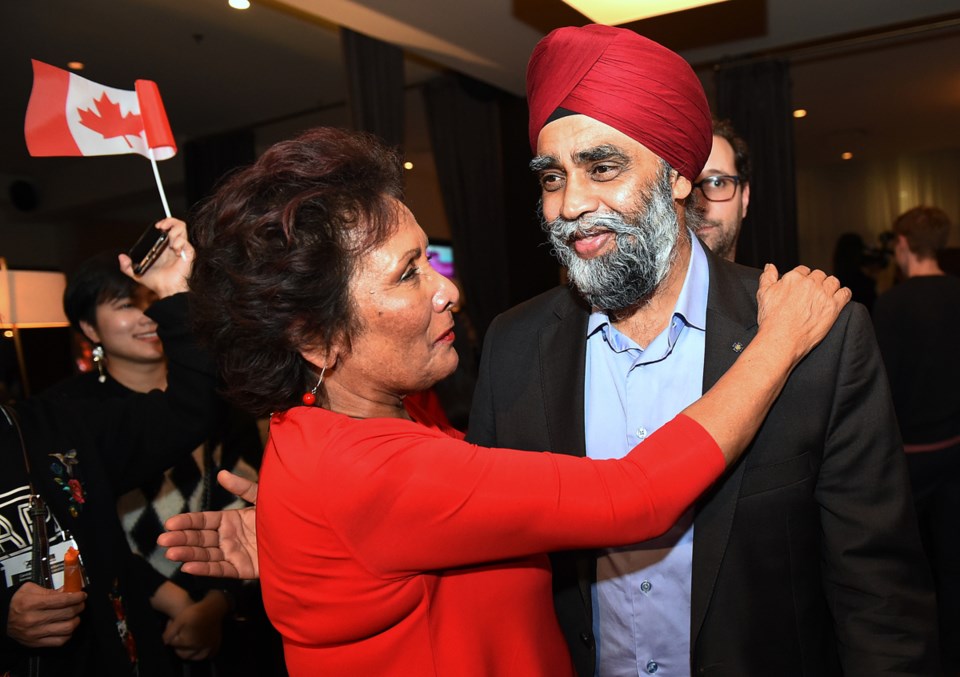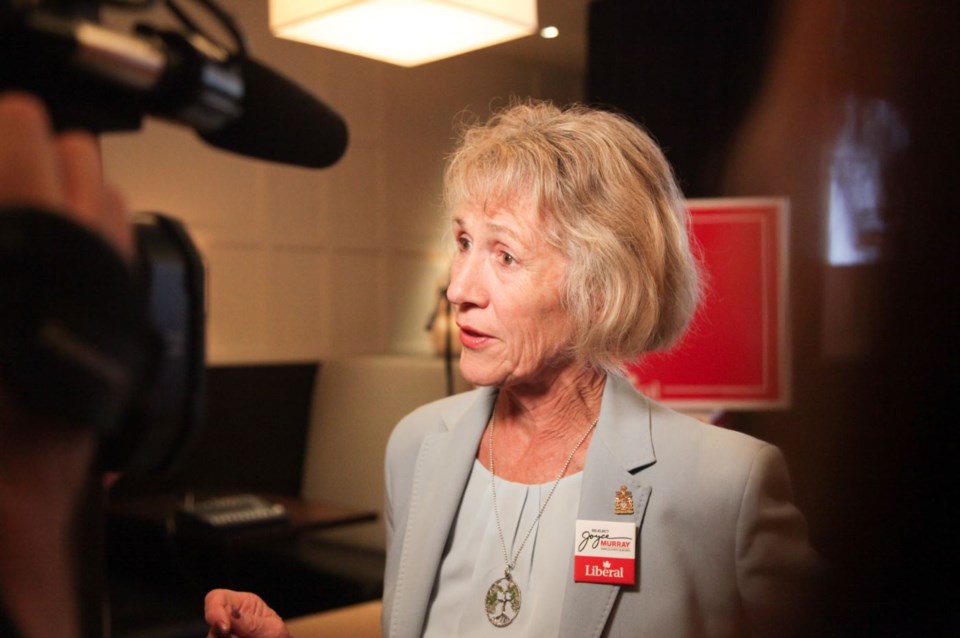Wearing a red dress and red ankle boots, longtime Liberal MP Hedy Fry popped a champagne bottle in the parking lot before dancing into her election celebration to Tina Turner’s “Simply the Best.”
While Fry’s result was decent — she earned just over 42 per cent of the vote in Vancouver-Centre, according to early numbers — Prime Minister Justin Trudeau and the Liberals’ overall performance couldn’t be described as “the best” — the party failed to win enough seats for a majority.
The party’s grip on Â鶹´«Ă˝Ół»also loosened slightly — Liberals secured three of the city’s six available seats, down one from the 2015 election thanks to Liberal-turned-Independent Jody Wilson-Raybould capturing Vancouver-Granville in one of the most-watched races in the 2019 election.
In Vancouver, aside from Fry, Liberal incumbents Harjit Sajjan in Vancouver-South and Joyce Murray in Vancouver-Quadra were re-elected, while the city’s two remaining seats went to NDP incumbents Jenny Kwan in Vancouver-East and Don Davies in Vancouver-Kingsway.

In Fry’s acceptance speech at The Junction in the West End, she was circumspect.
“Perhaps tonight we have not had the results we wanted or we expected, which is a majority government, but we have a minority government,” she said. “Liberals can work with anyone that shares our values and we’re ready to roll up our sleeves and work with other parliamentarians in the House who share our values to get the kinds of things that we promised to get done.”
Among her priorities, she said, are health care, dealing with the opioid crisis, helping families who are struggling to bring up their children and shifting towards a green economy.
“Hopefully, in the House of Commons, there may be other progressives who are prepared to work with us on some of those things. I know that Justin Trudeau can work with anyone. He’s that kind of guy.”
Fry, who was first elected in 1993, is the longest-serving female MP in Canada. While popular, she didn’t fare as well this time around as she did in 2015 when she won with slightly more than 56 per cent of the vote in her riding. Sajjan collected 48.8 per cent four years ago, which fell to 41.1 per cent Monday, while Murray dropped from 58.7 per cent in 2015 to 43.4 per cent.

Support for the Liberals eroded over their four-year term over issues ranging from Trudeau’s broken promise of electoral reform to the party’s decision to approve the Trans Mountain pipeline expansion, with the government subsequently buying it — a move that angered environmentalists in the face of a climate change crisis.
Trudeau was also criticized for his handling of the SNC-Lavalin affair. Wilson-Raybould, and fellow Liberal Jane Philpott, ultimately resigned from cabinet over the controversy and Trudeau later booted both women from cabinet. Like Wilson-Raybould, Philpott ran as an independent, but unlike Wilson-Raybould, didn’t succeed.
News, which emerged during the election campaign, that Trudeau had appeared in brownface and blackface on several occasions also tarnished his reputation.
But Fry said she didn’t hear much about most of those issues at the doorsteps over the past few weeks, except for the Trans Mountain pipeline expansion.
“Probably TMX was the only one that I heard more than anything else. I didn’t hear anything about the black, brownface at the door and I heard from three people about SNC-Lavalin, so it wasn’t a big issue for me in this riding.”
When asked what she thought the election results mean for the pipeline, Fry said, “We’ll have to see.”
As for the biggest disappointment in the election, for Fry it was Ralph Goodale’s loss to the Conservatives in Regina-Wascana.
“He has been a great MP. He has been a great mentor. He is somebody that I have actually worked very, very closely with over the years and I think he will be real loss and I think Saskatchewan would have lost by not having a voice at the cabinet table.”



